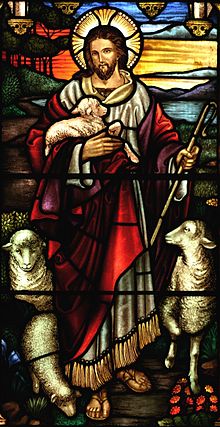Nobelists, Philosophers & Scientists on Jesus (Part I)
Author/Compiler: Tihomir Dimitrov (http://nobelists.net; also see http://scigod.com/index.php/sgj/issue/view/3)

1. ALEXIS CARREL, Nobel Laureate in Medicine and Physiology
“Jesus knows our world. He does not disdain us like the God of Aristotle. We can speak to Him and He answers us. Although He is a person like ourselves, He is God and transcends all things.” (Carrel 1952, Chap. 6, Part 7).
2. ALBERT EINSTEIN, Nobel Laureate in Physics
Einstein’s attitude towards Jesus Christ was expressed in an interview, which the great scientist gave to the American magazine The Saturday Evening Post (26 October 1929):
“- To what extent are you influenced by Christianity?
- As a child I received instruction both in the Bible and in the Talmud. I am a Jew, but I am enthralled by the luminous figure of the Nazarene.
- Have you read Emil Ludwig’s book on Jesus?
- Emil Ludwig’s Jesus is shallow. Jesus is too colossal for the pen of phrasemongers, however artful. No man can dispose of Christianity with a bon mot.
- You accept the historical Jesus?
- Unquestionably! No one can read the Gospels without feeling the actual presence of Jesus. His personality pulsates in every word. No myth is filled with such life.” (Einstein, as cited in Viereck 1929; see also Einstein, as cited in the German magazine Geisteskampf der Gegenwart, Gütersloh, 1930, S. 235).
3. ARTHUR COMPTON, Nobel Laureate in Physics
“Jesus’ teaching and the example of His life form the most reliable guide that I have found for shaping my own actions. It is because I accept His leadership that I call myself a Christian.
I see Him as the Everest among the world’s many high mountains.” (Compton 1956, 346).
4. ROBERT MILLIKAN, Nobel Laureate in Physics
“The practical preaching of modern science - and it is the most insistent and effective preacher in the world today - is extraordinarily like the preaching of Jesus. Its keynote is service, the subordination of the individual to the good of the whole. Jesus preached it as a duty - for the sake of world-salvation. Science preaches it as a duty - for the sake of world-progress.
Jesus also preached the joy and the satisfaction of service: ‘He that findeth his life shall lose it, and he that loseth his life for my sake shall find it.’ ” (Millikan, as cited in Kargon 1982, 147).
5. FRANCOIS MAURIAC, Nobel Laureate in Literature
“Our hearts remain full of unseen idols until we are stretched on the wood of the Cross with Christ, until we cease trying to nourish ourselves and our desires, and give ourselves completely to the poor, to the needy, to the suffering members of Christ’s body throughout the world.” (Mauriac, Notre Dame, 1964).
6. SIGRID UNDSET, Nobel Laureate in Literature
In her article “Catholic Propaganda” (1927), Sigrid Undset wrote: “There is no room in the Catholic Church for different concepts about the being of God or about the divine-human nature of Jesus Christ or about the motherhood of the Virgin Mary; because Christ himself is the way to God’s kingdom and because his death on the Cross is the secret which opens God’s kingdom to the descendants of Adam, his blood truly cleanses the sinner from all his sin, his body is truly the food which is the life of believers.” (Undset 1993).
7. T.S. ELIOT, Nobel Laureate in Literature
“Christ is the still point of the turning world.” (Eliot, as cited in Castle 2002, 219).
“The division between those who accept, and those who deny, Christian revelation I take to be the most profound division between human beings.” (Eliot, as cited in Yancey 1999, 88).
8. MOTHER TERESA, Nobel Peace Prize Laureate
“Charity begins today. Today somebody is suffering, today somebody is in the street, today somebody is hungry. Our work is for today, yesterday has gone, tomorrow has not yet come - today, we have only today to make Jesus known, loved, served, fed, clothed, sheltered, etc. Today - do not to wait for tomorrow. Tomorrow might not come. Tomorrow we will not have them if we do not feed them today.” (Mother Teresa 1991).
“Christ has come to bring the good news for you and for me. And as if that was not enough - it was not enough to become a man - He died on the cross to show that greater love, and He died for you and for me and for that leper and for that man dying of hunger and that naked person lying in the street not only of Calcutta, but of Africa, and New York, and London, and Oslo - and insisted that we love one another as He loves each one of us.” (Mother Teresa, as cited in Thee 1995, 499).
- Log in to post comments




Recent comments